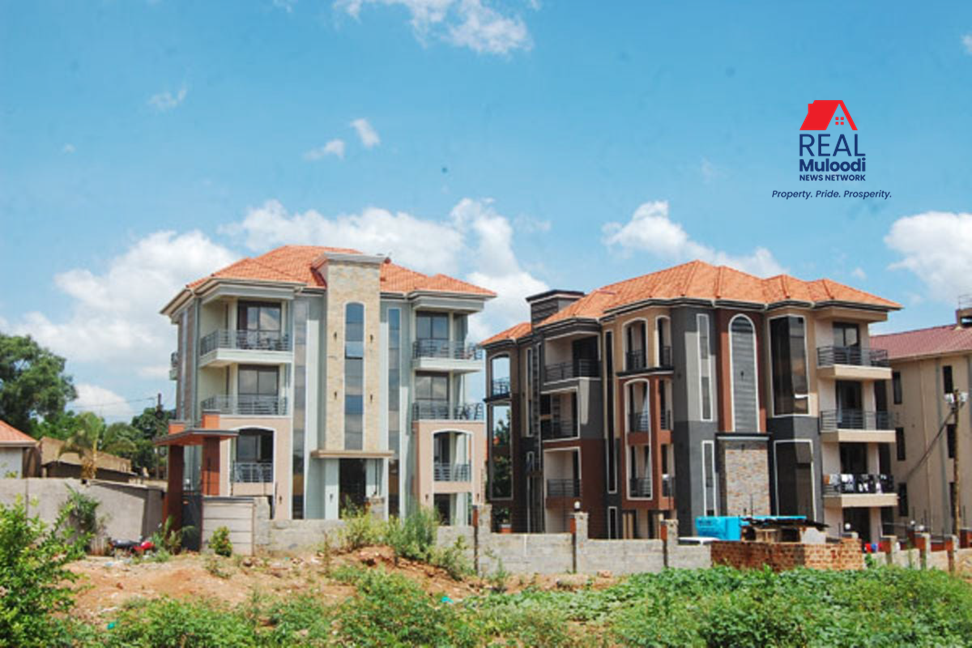UGANDA, Kampala | Real Muloodi News | Real estate prices in Uganda are projected to increase in 2025 due to various economic and social factors. Industry reports indicate that urbanisation, economic growth, and infrastructure development will drive demand, particularly in major cities like Kampala, Entebbe, and Jinja.
Additionally, policies aimed at facilitating real estate growth and an increase in foreign investment are expected to support this upward trend.
Economic Growth and Urbanisation
Uganda’s economy is forecast to experience steady growth, potentially boosting consumer confidence and increasing real estate demand. As economic conditions improve, more people are likely to afford property purchases.
Real estate analysts attribute part of the anticipated price increase to Uganda’s expanding middle class, which may push demand for quality housing as incomes rise.
Additionally, urbanisation in Uganda has been increasing, with many people moving from rural to urban areas in search of employment and better living standards. This urban migration has increased demand for housing, particularly in urban regions like Kampala. The demand surge typically drives real estate prices higher, especially in cities experiencing rapid population growth.
Government Infrastructure Initiatives
Government initiatives to enhance infrastructure are also likely to affect real estate prices positively. Improvements in transportation, utilities, and public facilities can significantly boost property values by making neighborhoods more accessible and desirable for both residents and investors.
For example, planned expansions of road networks and public transportation systems could enhance connectivity in and around Kampala, thereby increasing real estate appeal and demand.
According to the Uganda Ministry of Housing, initiatives targeting infrastructure development are part of a broader strategy to address urban housing shortages and improve living conditions.
“Infrastructure enhancements are a key factor in attracting real estate investment,” said a ministry spokesperson. This focus on infrastructure is expected to attract further investments in the housing market, potentially leading to a rise in real estate prices.
Growth in Foreign Investment
Foreign investment is another factor anticipated to affect Uganda’s real estate prices. The government has introduced policies designed to attract foreign capital into the real estate sector, including tax incentives and simplified approval processes for development projects.
Industry analysts indicate that foreign investors bring capital and expertise, which may drive construction and increase property values.
With stable political conditions, Uganda is seen as a relatively safe environment for long-term investments. Stability often reduces risks associated with real estate investments, encouraging both local and foreign investors to participate in property development. This influx of investment capital can stimulate further growth, pushing real estate prices upward.
Indicators of Potential Price Decrease
Despite these upward trends, some factors could place downward pressure on real estate prices. Inflation, for instance, could erode purchasing power, making it difficult for prospective buyers to afford property, which may reduce demand.
High interest rates could also impact the market, as they increase the cost of mortgages, potentially limiting the number of people able to purchase property.
“Inflationary pressures pose a risk to housing affordability,” noted an industry specialist. As a result, some buyers may delay purchases, which could moderate demand.
Another potential constraint on real estate prices is infrastructure limitations in some areas. Despite improvements, inadequate road networks and utilities can deter investment in specific locations, affecting property demand and price stability in those regions.
Some neighborhoods may require substantial infrastructure investments to become viable real estate markets.
Real estate prices in Uganda are likely to rise in 2025. An increase in foreign investment, aided by favorable policies, is expected to drive real estate development, which could further elevate prices.
However, potential challenges such as inflation, high interest rates, and infrastructure gaps may counterbalance this growth to some extent.
READ MORE LIKE THIS:



